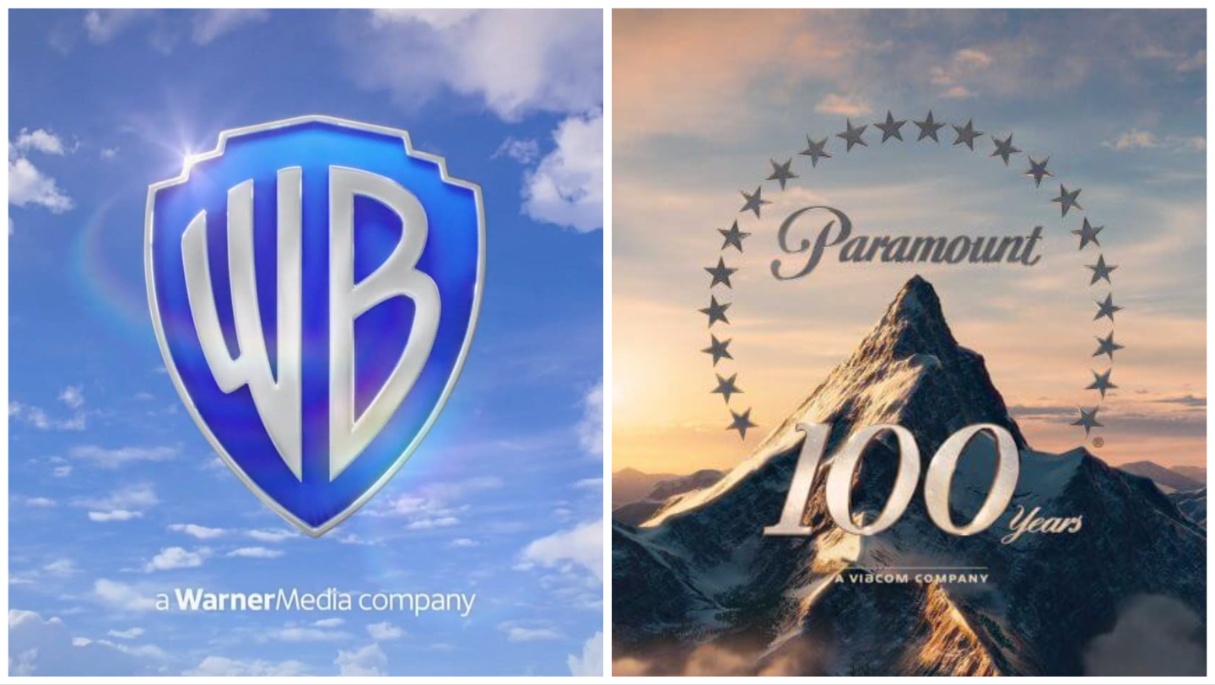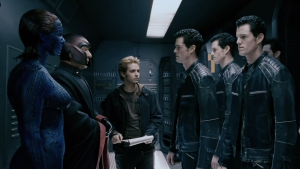
Ethan Hunt is about to join the DC Universe (or what is left of it). Top Gun pilot Pete “Maverick” Mitchell could find himself flying wingman to Harry Potter. Get ready for Batman v Transformers! The jokes wrote themselves Wednesday evening as late holiday season news broke: Warner Bros. Discovery CEO David Zaslav met with Paramount Global CEO Bob Bakish earlier this week to discuss a potential merger of their respective media companies. Yet any attempt at humor is of the strictly gallows variety (particularly since it is difficult to imagine someone like Tom Cruise working for David Zaslav).
That’s because the idea of a WBD and Paramount merger is bleak unless you own significant stock in either media company (and even by that yardstick, folks were skittish Thursday morning). That’s who these deals are designed for—not the filmmakers, artists, and certainly not the consumers. As the media landscape contracts ever further atop itself, and conglomerates complete the ouroboros cycle of eating their own tails, only downsides are left behind for those who want to watch or create more than declining franchise films at the multiplex.
Admittedly, there are many unknowns in the details of what a Paramount and Warners merger would look like, not least of all because it remains a matter of industry speculation whether Shari Redstone, who through National Amusements Inc. owns a controlling interest in Paramount, really wants to cash out of her family’s media company and legacy. Whether or not it happens though, the strong possibility signals a continued trend in the industry that is as beleaguering as it is damaging to even the most passive consumer’s interest.
It wasn’t even five years ago, for instance, when once and future Disney CEO Bob Iger achieved what at the time seemed to be his greatest coup de grâce: the acquisition of 20th Century Fox from Rupert Murdoch. Paying a whopping $71.3 billion for the media library and intellectual property of one of the oldest studios in Hollywood, Iger’s triumph was celebrated in some fanboy circles because it meant Fantastic Four and X-Men movies would be produced by Marvel Studios now instead of Fox. Almost half a decade later, those new superhero films haven’t come about yet, but the negatives for the industry and movie lovers have been precipitous and immediate.
In addition to laying off thousands of employees before the ink was dry in 2019, Disney’s Fox ownership has seen the newly rechristened 20th Century Studios morph into a shadow of its former self. In 2020, it leaked out that Disney aimed to reduce 20th Century’s output to a meager four films a year. While that hasn’t quite come to pass, the studio did only release three films theatrically in 2023 (The Creator, A Haunting in Venice, and The Boogeyman), and a further three films direct to Hulu or Disney+, depending on international region. In truth, the company that a few years ago was producing Oscar contenders like Ford v Ferrari, Bohemian Rhapsody, The Post, and Widows is now primarily a production company arm for Hulu.
Fox’s former prestige and speciality arm, Searchlight Pictures, has fared generally better post merger, and in fact has a major awards season player this year in Yorgos Lanthimos’ Poor Things. The studio even won Best Picture three years ago for Nomadland. Searchlight also produced some terrific outside-the-box films in the last year, including All of Us Strangers, Theater Camp, Rye Lane, and The Menu. Yet while Searchlight was left unmarked by the initial post-merger culling, after Disney signaled it was scaling back all film and TV output in 2023, it was later announced that the Mouse was laying off more than a hundred Searchlight employees.
Oscars are nice, but Disney acquired Fox to build up its streaming catalog and media library, as well as to land those coveted legacy IPs. Next year, the studio formerly known as Fox’s biggest releases are an Omen prequel, a Planet of the Apes sequel, and an Alien sidequel set between the events of a film released in 1979 and another in 1986. Meanwhile most of the Fox films now sitting on Disney+ are holiday family friendly flicks like Home Alone, Miracle on 34th Street, and The Sound of Music. Let’s just say Disney+ has less use for all-time classics like All About Eve or even the Christmas-adjacent Die Hard.
Elsewhere, Disney has quietly thrown into the Disney vault almost all of Fox’s cinematic history, denying repository theaters to show on the big screen classics like The Fly, The Day the Earth Stood Still, Phantom of the Paradise, Suspiria, Zardoz, The Princess Bride, Moulin Rouge!, and Fight Club. None of these films are likely to bear fruit for Disney’s “franchises all the time” strategy. They just don’t want anyone else to profit off them. Unfortunately, a side effect of such hoarding is eventually future generations won’t remember them either.
In the 21st century, the tools of filmmaking are democratized in a way like never before. Alas, the ability to actually build a platform big enough for people to see those films has withered, with legacy film studios still being the best way to get movies and new voices into theaters, and with a marketing budget that might cut through social media bubbles. Reducing the number of studios serves no one but media executives convinced that the only future for maximum profitability is being one of maybe three or four media companies with their own streaming services—and two of those chairs are already occupied by Netflix and Amazon.
Building up the size of companies ad infinitum makes sense purely in the mindset of constant corporate growth. But it is arguably monopolistic and certainly anti-consumer, and raises questions about what a media company can do to raise a red flag with antitrust laws. A combination of WB and Paramount will inevitably lead to fewer movies being made, fewer people being employed, and evermore limited access to either company’s hundred-year-old film libraries. Zaslav is, after all, the man who threw multiple near-finished films into a vault forever in order to secure tax write-offs.
Harry Potter might become Maverick’s wingman, but from a distance both look as if they are in free fall.
The post WB and Paramount Merger Would Be Bad for Everyone Except Shareholders appeared first on Den of Geek.









